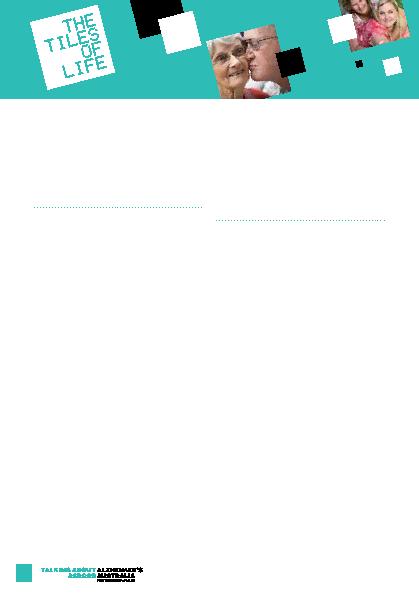
and discuss outcomes and the impact on the
population of people living with neurocognitive
degeneration and dementia in Tasmania.
an update on our current investigation into
how voluntary physical exercise mitigates the
cognitive decline associated with ageing.
to be one of the most potent stimulators of
neurogenesis, the formation of new neurons,
in the brain of both young and old animals.
This indicates that the aged brain is more
adaptable to change that previously thought.
It is now accepted that the hippocampus
of the adult brain, an area important for
learning and memory, contains a population of
dormant precursor cells that can be activated
to produce more neurons. We have recently
shown, for the first time, that physical
exercise activates these cells in ageing mice.
Interestingly, we have found that compared
to young animals, those of very advanced
age required a prolonged exercise regime to
activate precursor cell number and increase
neurogenesis. We are now investigating
exercise-dependent activation of precursor
cells and subsequent neurogenesis within
these very aged animals. By identifying these
mechanisms, it may be possible to design
effective strategies to slow or even reverse
the cognitive decline associated with normal
ageing as well as disease states such as
Alzheimer's disease.
(PhD) Wintringham
used to describe the physical injury to the
brain sustained as a result of excessive
alcohol consumption. Having ARBI is not the
same as having an aged related dementia.
The behavioural profile and support needs of
older people living with this condition are also
markedly different. The degree of brain injury
resulting from excessive alcohol consumption
depends on many factors, including the
amount and pattern of consumption, age, sex,
nutrition and individual differences. ARBI may
be mild, moderate, severe or very severe.
ARBI is associated with changes in cognition
(memory and thinking abilities), difficulties
with balance and coordination and a range of
medical and neurological disorders.
of the recently completed Wicking Research
Project in which a psychosocial model of long
term residential care for older people living
with Alcohol Related Brain Injury (ARBI) was
developed, trialled and evaluated. The major
aims of this 5-year project were to determine
the most effective & appropriate residential
care model for this population group; influence